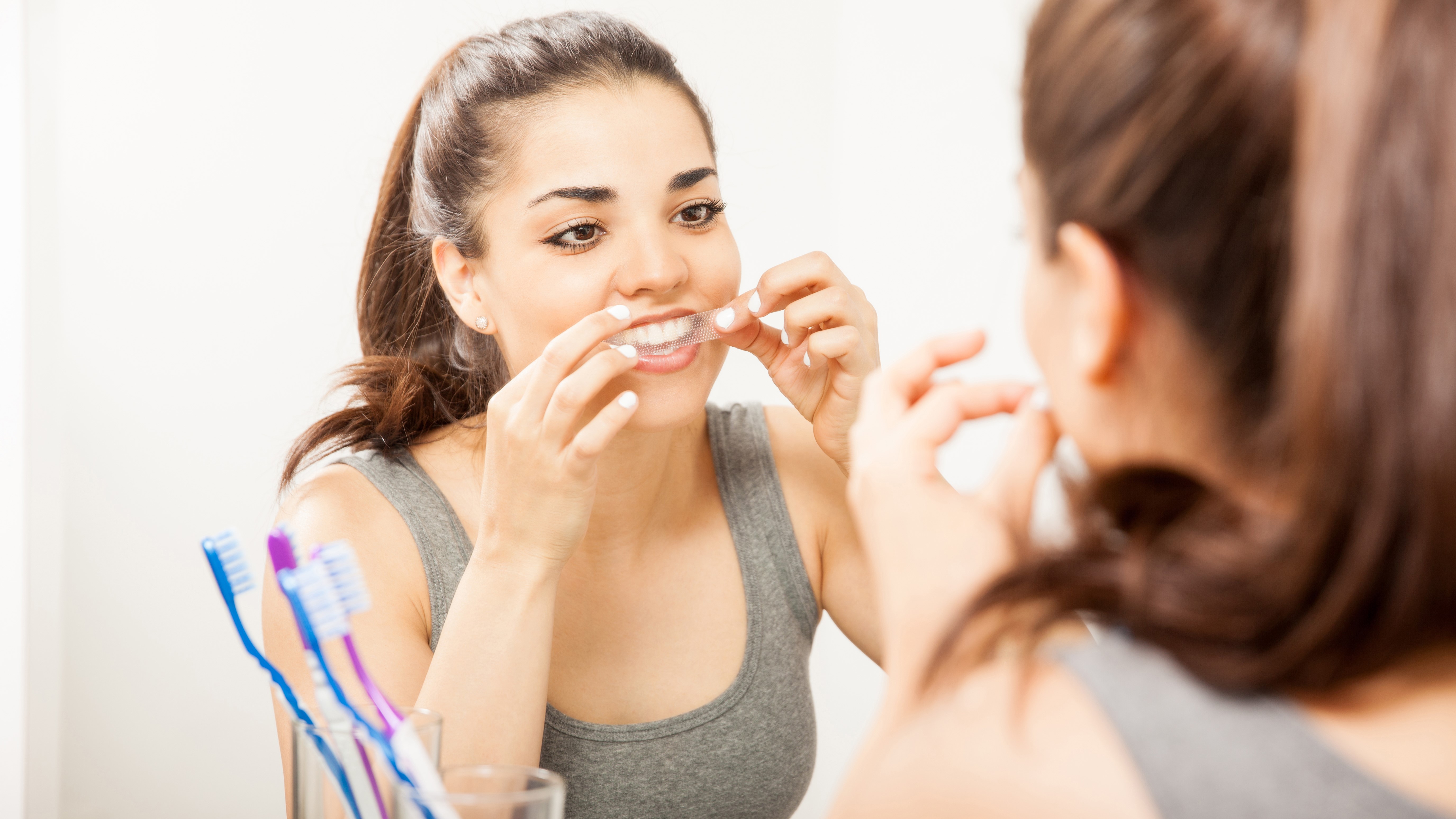There's no way you can prevent tooth discoloration completely: simply breathing, eating, and drinking, among other things, contribute to the slow staining of your teeth. You may not notice it immediately, but over time, you may start to consider using the best teeth whiteners for home use, and incorporating a few extra trips to the dentist to help combat this staining and yellowing.
Here, we break down ways you can both prevent staining and reduce the appearance of stains on your teeth.
What causes tooth discoloration?
Tooth discoloration can be caused by a number of natural factors, most of which are nothing to be concerned about. Here are a few to be aware of:
Food and drink: Eating and drinking are common culprits of tooth discoloration, particularly red or dark-colored food and drinks such as coffee, tea, colas, wine, red sauces, and some fruits and vegetables.
Tobacco: Smoking or chewing tobacco can cause stains to form on your teeth.
Excessive fluoride: You may be consuming more fluoride than you think, and fluoride may be the culprit behind your yellowing teeth – it's not just found in dental products, but may also be present in your drinking water, for example.
Medication: Some medications can cause tooth discoloration. Such medications include antibiotics like tetracycline and doxycycline, mouth rinses that contain chlorhexidine and cetylpyridium chloride, as well as antihistamines, antipsychotic drugs, and antihypertensive drugs.
Age: As we get older, our tooth enamel – which is white – wears down to reveal our teeth's natural yellow color.
Genetics: DNA has a say in determining both how bright and how thick our enamel becomes as adults.
Poor dental hygiene: Of course, if you don't take care of your teeth, you may see your teeth yellow and stain faster than usual. For optimal oral health, dentists recommend brushing at least twice a day, and flossing regularly (no, not the dance).
Disease and trauma: Diseases that affect the enamel can cause yellowing and staining. Treatments for illnesses unrelated to oral health can also cause teeth discoloration.
What to avoid to prevent tooth discoloration
Despite all the factors that can contribute to the yellowing and staining of your teeth, a few simple changes to your habits and lifestyle can slow down the process significantly. Such changes include avoiding food and drinks known to cause staining, quitting smoking, and brushing and flossing regularly. You may also want to invest in bi-yearly dentist appointments to help keep your pearly whites in tip-top shape.
Tooth whitening at home
Sometimes, good habits such as brushing and flossing aren't enough to stop natural processes. Depending on the level of discoloration and staining of your teeth, as well how sensitive your teeth are to bleaching chemicals, you may look into over-the-counter teeth whitening solutions.
Also, many of the best electric toothbrushes have whitening modes, so check to see if yours does too.
When should you go see a dentist?
Your teeth are susceptible to everyday wear and tear, and in the process, can become yellow and stained. While this may be fixed with home teeth-whitening kits, you may not always get the results you want.
You may even think that you've caused more damage to your teeth than good, especially if you haven't followed the instructions to the letter. Here's when to go see the dentist for a professional opinion.
- If your teeth don't whiten to your liking. It's strongly discouraged to use any teeth-whitening product beyond what the instructions tell you
- If you've tried whitening the teeth around teeth with fillings or crowns. If you've done this, you may see uneven results
- If the sensitivity in your teeth and gums hasn't gone away after using teeth-whitening products
- If you are pregnant or nursing, you may want to consult a dentist before using any teeth-whitening products
If you don't yet have coverage, take a look at our guide to the best dental insurance, or learn about the different types of dental insurance and how to find a dentist near you.

